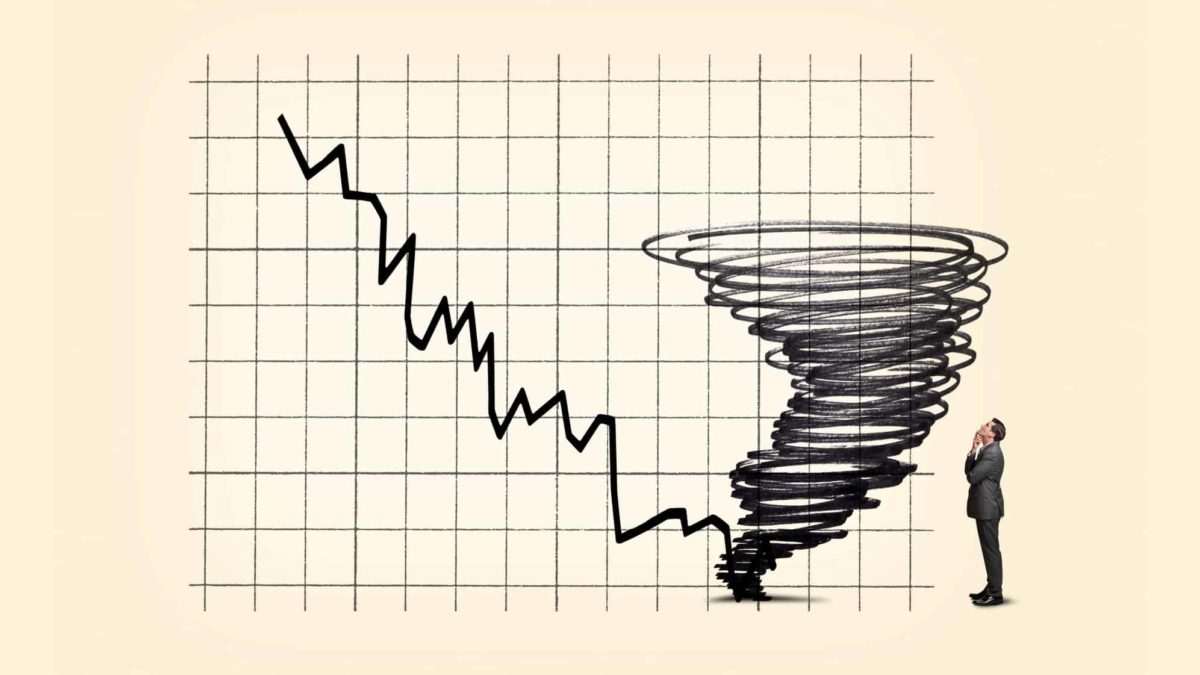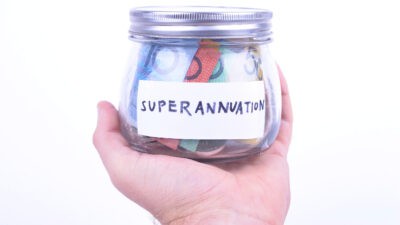
Image Source: Getty Images
If there's one thing 2020 should have taught us, it's that the stock market is volatile.
A 38% fall in 37 days between mid-February and mid-March.
A full recovery, to an all-time high, in the 14 months that followed, to set a new record closing high on Tuesday.
And then, a couple of days of falls.
Overnight, the S&P 500 fell more than 2%, on the back of a stronger than expected inflation result.
We'll probably follow, to some degree.
Of course, the 'total market' stats hide a lot of individual share price movements.
Afterpay, one of the hottest stocks in the land, didn't just fall 38% last March.
It fell a full 78%.
More than three-quarters of its value disappeared in a little over a month.
Dead? Buried?
Actually, not so fast.
Over the following 5 months, it went up more than 10 times in value.
And kept going.
Almost exactly 12 months after its pre-COVID high, shares hit $158.
From $40 in February 2020.
To $9 in March 2020.
To $96 in October 2020.
To $158 in February 2021.
To $101 in March
To $128 in April.
To $89 yesterday.
Yep. Volatility.
Now, if you're like me — actually, if you're human at all — your brain will work in a very specific way: the more recent something is, the more powerfully you'll remember it, and the more it acts to crowd out events further back.
There is a reason for the cliche "Generals fight the last war" — it's the one everyone remembers. It's seared into their minds.
That means if you've been an Afterpay shareholder for more than a year — even if you bought at $9, $29 or $49 — you're probably feeling pretty ordinary right now.
You're thinking about the losses over the past month.
I don't blame you; as I said, it's evolution at work.
So I'm, today, here to help you consciously address your subconscious.
I'm here to remind you:
That volatility is the 'ticket to the dance' in investing.
That volatility has always been with us.
That even Warren Buffett's company, Berkshire Hathaway (I own shares for the record) fell more than 50% from its peak three times over Buffett's time at the helm.
That even Woolies — hardly a go-go tech stock — fell from $37 to $20 between 2014 and 2016, before going on to get back to $40 last year.
I'm here to remind you that progress is never a straight line.
I wrote above '… If you're like me…'.
So let's make it personal.
I own Kogan shares.
They were over $30 last year. They're now trading a little above $10.
I own Corporate Travel. I saw them go from $30 a few years ago to under $6 last year. Then bounce back to almost $22. They're under $17 as I type this.
I own Treasury Wine Estates. Those shares were riding high at almost $20 last year. They're now less than half that.
And over the last few months, my portfolio has been walloped.
Seeing that money disappear is painful. No two ways about it.
Truly, I feel your pain.
But I'm not dispirited.
I'm not disheartened.
I'm not dissuaded.
See, we've been here before.
Oh not 'here' exactly, but a place very much like it.
The '87 crash.
The 1990s recession.
The Asian Financial Crisis in the late 90s.
The dot.com crash.
The GFC.
And yep, the COVID crash.
That's a lot.
They're not fun.
They're not easy.
They're not predictable.
They don't all have the same pattern.
And yet… according to Vanguard, a hypothetical $10,000 investment in Australian shares would have turned into $130,457 over thirty years to June 30, last year.
(And yes, the market is even higher, since then.)
There are no guarantees in investing.
But the history of the stock market is one of steady (if saw-toothed) upward progress.
As I said, I feel your pain.
So what am I doing?
Well, I haven't sold a single share in years.
I've been buying, regularly.
Because, if I'm right, and my diversified portfolio of companies continues to deliver business growth, leading to higher profits, I think share prices will follow.
Indeed, times of fear and uncertainty have, historically, been times to buy, not sell.
So, remember Warren Buffett's advice.
He wrote that he and his business partner, Charlie Munger, let their investments:
"…tell us by their operating results – not by their daily, or even yearly, price quotations – whether our investments are successful.
"The market may ignore business success for a while, but eventually will confirm it. As Ben [Graham] said: "In the short run, the market is a voting machine but in the long run it is a weighing machine."
"The speed at which a business's success is recognized, furthermore, is not that important as long as the company's intrinsic value is increasing at a satisfactory rate. In fact, delayed recognition can be an advantage: It may give us the chance to buy more of a good thing at a bargain price."
Easy to say.
Harder to do.
But worth it.
We're right here with you.
Investing alongside you.
Right now, things are bumpy.
But this, too, shall pass.
I'll end with a lesson I learned many years ago.
When I was learning to ride a motorcycle, I was pretty wobbly.
They're big, heavy, and it takes a while to get used to the acceleration and braking.
And you need to keep the thing balanced.
I was finding it really hard.
Until the instructor gave me one piece of advice:
"Stop looking at the ground in front of your front wheel", he said.
"Look to where you want to go"








